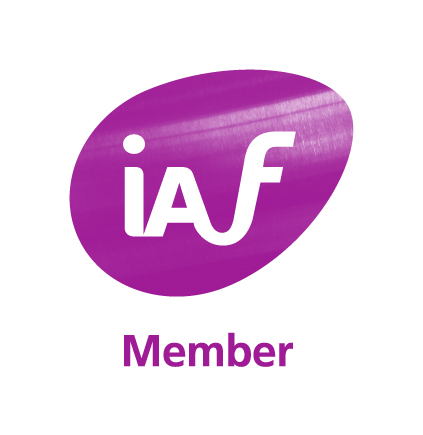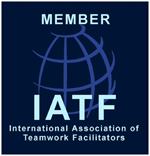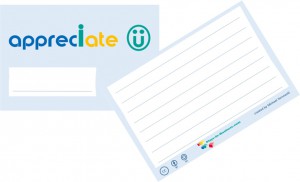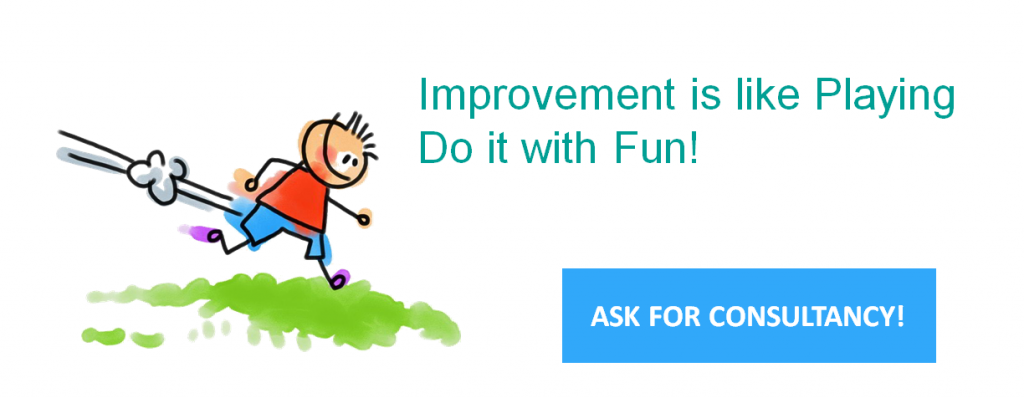|
This page was exported from Plays-In-Business
[ https://www.plays-in-business.com ] Export date: Sat Jul 27 9:36:58 2024 / +0000 GMT |
Facilitation Formats I UseCoaching & Facilitation Formats I Use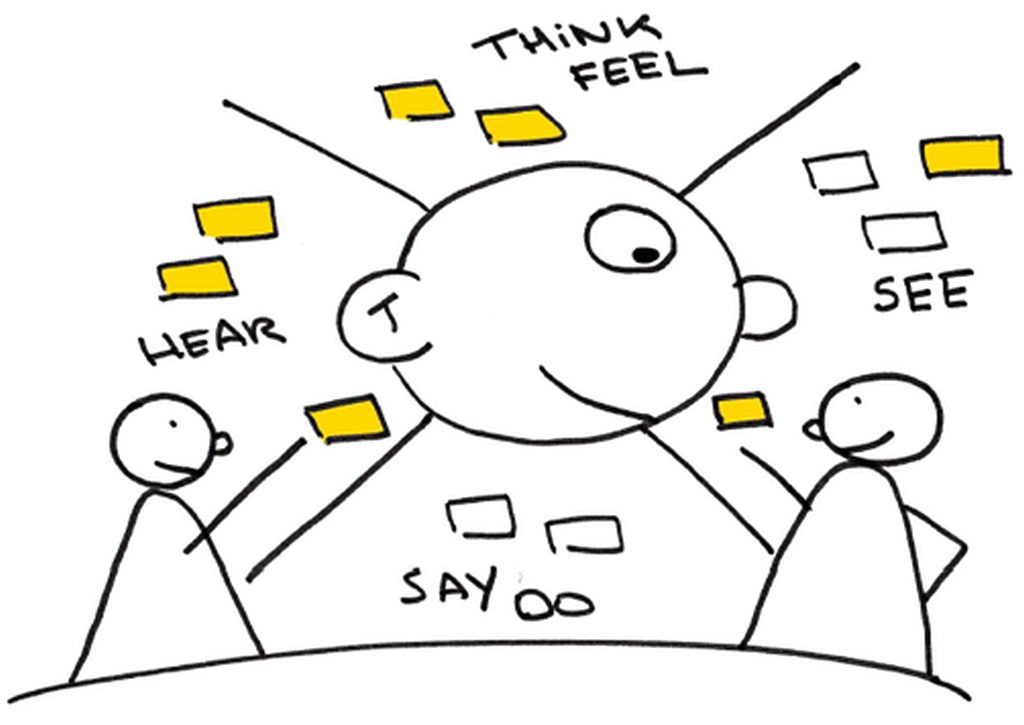 I worked as a consultant for process improvement, as coach and scrum master, or as a facilitator with small and with large groups in different fields of industries. I was always faced — in all these areas — with the same challenges:
Being a member of the International Association of Teamwork Facilitators (IATF) and the International Association of Facilitators (IAF), I'm bound to the following code of ethics:
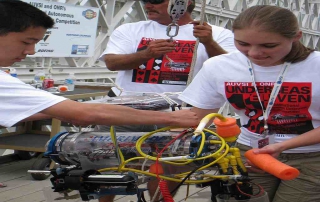
Action LearningAction Learning facilitation (AL) is a process to foster learning by working on real problems and actually implementing solutions. It is a form of learning by doing. AL is grounded by the assumption, that learning is best achieved in small groups (so-called "sets") by individual practice and asking skillful questions. 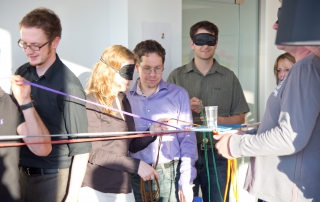
Agile GamesAgile Games are serious instruments to solve real business issues in management, product development and team building and other important areas. The term "agile" is more about delivering the highest business value as possible faster by focusing on people and continuous improvement. Agile Games are a set of collaborative workshop formats. They are moderation practice tools to facilitate innovation in the business world. Their focus is on teaching, demonstrating, or improving workplace behaviour and organisational effectiveness. They are ideal instruments for participants/players level, to share mutual understanding, and to make lessons stick best. 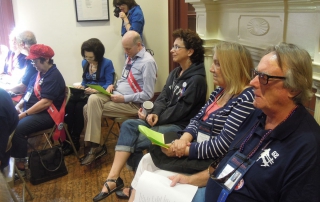
Appreciative InquiryAppreciative Inquiry facilitation (AI) builds on the present potential of a given person, organisation or situation to envision the future. AI challenges organisations to take a strengths-based approach when assessing and adapting their services or products. AI is used to discover strengths and assets and how we might use them to achieve our future. 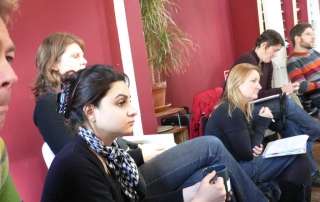
Art of HostingArt of Hosting is a highly effective way of tackling the collective wisdom and self-organizing capacity of groups of any size. It is a participative approach for leading, convening and engaging groups and teams in meaningful conversations. It blends a suite of powerful conversational processes to invite people to step in and take charge of the challenges facing them, and focuses on convening strategic conversations as a driver for development and change. 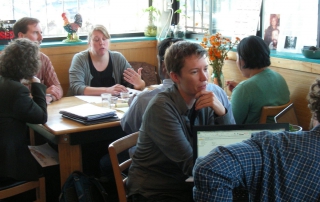
BarCampBarCamp facilitation is an un-invited, open un-conference like open space. Everyone can attend, all attendees are encouraged to present or facilitate a session or otherwise contribute to the event. 
Brown-Bag LunchBrown bag lunches are a format for internal employee training. They are an opportunity for employees to gather at lunchtime to share information about topics of interest in an informal setting. The meetings are either structured or unstructured and are used to transfer knowledge, solve problems, brainstorm and build trust among attendees. 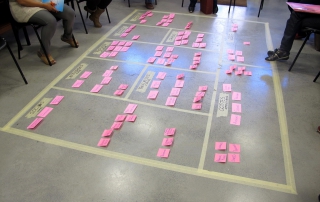
Canvas Modeling — What is it?Canvas Models are visual one-page overviews that lay out both what you do (or want to do), and how you go about doing it. They enable structured conversations around management and strategy by laying out the crucial activities and challenges involved with your initiative and how they relate to each other. 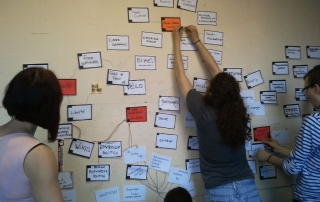
Collective Mind-MappingCollective Mind-Mapping facilitation creates a collective and collaborative, commonly shareable mind map. 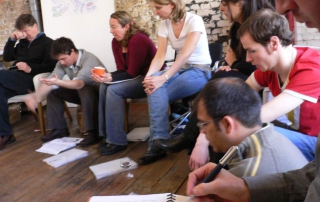
Collective Story HarvestingCollective Story Harvesting is a storytelling process to unveil multiple aspects, facets, and insights hidden deeply in the experiences of individuals, communities, teams or organisations. The process is about to sharpen the listening and to concentrate to certain pre-agreed details and topics in the story when it is told. 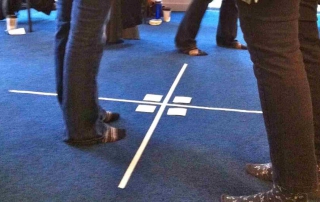
Constellation GameConstellation Game is a playful transformation of the well-known system constellation method from systemic family therapy to the field of consensus-based decisioning. 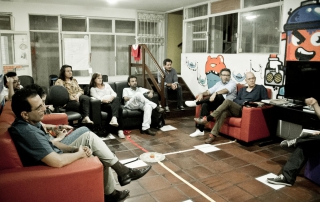
Dragon DreamingDragon Dreaming is a participative, holistic, and highly structured method to realise creative, collaborative, and sustainable projects. It is based upon the principles of personal and group empowerment, win-win, consensus and commitment. The Australian John Croft developed Dragon Dreaming on the basis of system thinking and the wisdom of Australian aborigines. 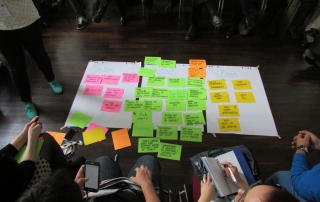
Dynamic FacilitationDynamic facilitation is a facilitation method for group discussions in a high emotionally supercharged environment. The method is grounded on the creativity and energy of a group without constraining it or to follow traditional, linear, moderation structures like agendas or exercises. 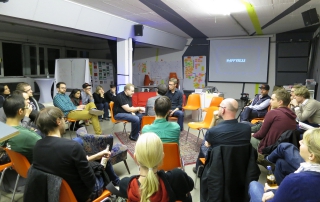
FishbowlFishbowl facilitation is a simple, effective alternative to a plenum discussion. In combining large group facilitation with small group discussions, fishbowl creates a vivid and spontaneous discussion format. One advantage of a fishbowl facilitation is that it is suitable for large groups. It also lessens distinctions between the speakers and the audience. 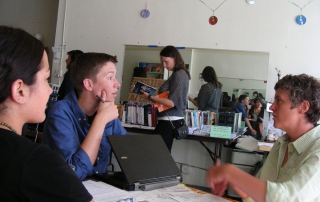
Five to FoldFive-to-Fold is a method for effective, holistic group decision-making. It invites, honors, and integrates all individual perspectives. Five-to-Fold is intended as a process for genuine decision-making, rather than for gathering feedback or informing a decision to be made elsewhere. 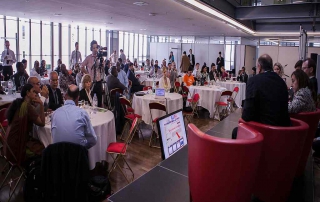
Future SearchFuture Search facilitation is a task-focused, future planning conference that helps people transform their capability for action very quickly. In a Future Search, 30-64 diverse stakeholders — a cross-section of people concerned with the activities of the Organisation or community undertaking the search, collaborate on their common future. They take ownership of their past, present, and future, and confirm their mutual values, and commit to action plans grounded in reality. 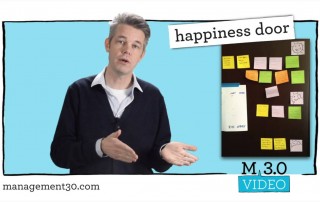
Happiness Door — An Alternate Feedback Tool for Events, Workshops, and RetrospectivesThe Happiness Door is one of the Management 3.0 practices. It is a tool to give feedback continuously in workshops, events, or meetings in three categories: things that make attendees happy, things they feel neutral about and things they didn’t like. Usually, it is either an empty flipchart or a collection of post-its. 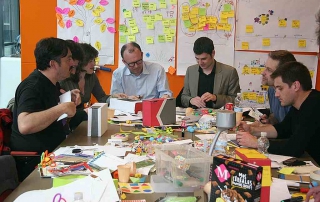
Innovation GamesInnovation Games® are on real-time focused, collaborative games to engage customers and stakeholders. Playing the games is like generating feedback about a product or service. With Innovation Games you accurately predict what your customers want, need, and will pay for. 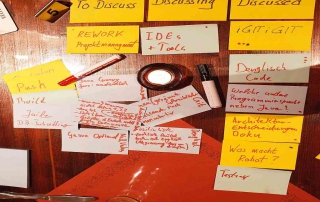
Lean CoffeeLean Coffee is a structured, but agenda-less meeting. The participants come together, build an agenda, and start talking. The conversations are directed and productive because they are strictly time-boxed and the agenda for the meeting is democratically generated 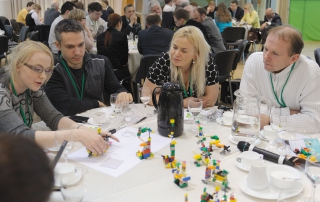
LEGO Serious PlayLEGO® Serious Play (LSP) is a facilitated method for strategic decision-making and problem resolution in business environments. Workshop results are always directly aligned to the business goals in focus and can be used next day at the work floor immediately. Workshop participants are all equally involved in finding the business solutions. 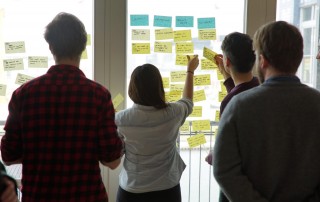
Lightning Decision JamLightning Decision Jam (LDJ) is a format for group decisioning. All open, unstructured discussion are replaced with a clear, timeboxed structured process. LDJ has its background in design thinking. 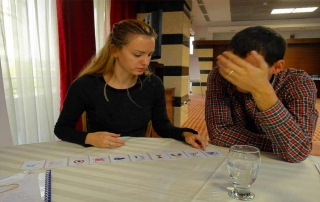
Moving MotivatorsMoving Motivators is a card game to reflect on people's motivation and how it is affected by organisational change. The cards help to unveil and discuss ten intrinsic desires, which motivates people most. It is a metaphorical game to reflect on people's motivation and how this is affected by organisational change. 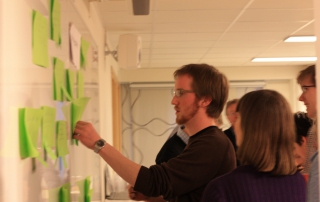
Open Space TechnologyOpen Space Technology is a highly scalable and adaptable facilitation method to enable all kinds of people, in any kind of organisation, to create inspired meetings and events. It relies strongly on self-organisation of the group of participants. 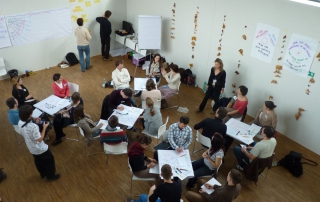
ProAction CaféProAction Café is a facilitation for action-oriented, creative, and inspirational conversations. The participants are invited to share their questions (around projects, or seed ideas) and get input from others. ProAction Café moves from questions to actions by providing space for creativity and getting deeper input (deeper questions, knowledge, experience) from others. 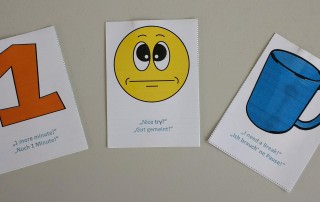
Self-Facilitation Card DeckUse these 3 cards to ask in a meeting for a break, to end discussion of endless topics, or to stop digressing or starting violating issues. 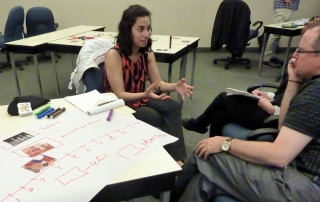
Solution FocusSolution Focus Facilitation is goal oriented, targeting the desired outcome of the session as a solution rather than focusing on the symptoms or issues that brought the participants to the session. This technique emphasises present and future circumstances and desires over past experiences. 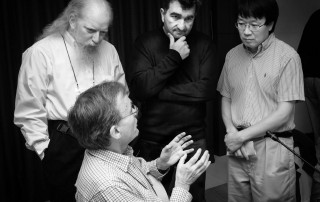
Systemic Consensing — What the Hell is this?Consensus is time-consuming agreement, accord. Consensing instead is defined as having no significant objection. It does not require agreement, affirmation or even preference. Consent is reached by choosing the proposal with the least objections. The lowest level of objection — resistance — results to the highest acceptance. 
Techniques for Decision-makingThere are several methods for Decision-making you can use in group decisioning or group facilitation. All of these are variants of Consensus-based decisioning or Majority Voting — aka Democratic Voting. A completely different approach is systemic consensing. 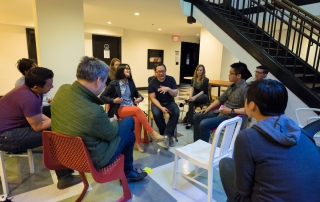
Wisdom CouncilWisdom Council is a large group (500+) facilitation — e.g. for business and non-profit organisations, government agencies, towns, cities, and nations — to address and solve difficult issues together. A Wisdom Council is a one-time, randomly-selected group of stakeholders who produce a consensus statement which is made available to the larger group for further dialogue and action. Wisdom Councils are most powerful when they are done periodically. 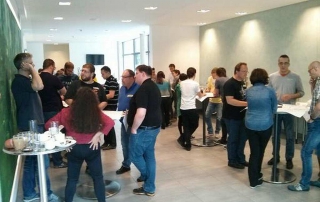
World CaféWorld Café is a group interaction method focused on conversations. It fosters the interaction and dialogue with large and small groups. It is very effective to identify collective wisdom of large groups. It is an ideal way to find out what a community is thinking and feeling about a topic. 
You Consent, I Dissent — The Five Levels of AgreementMaking decisions by consensus, people seldom agree equally to the decision found. Instead, they commit themselves to their own level of personal agreement. All of a sudden, you have ignored several levels of agreement. And sometimes to disagree is a sign of commitment. - Weird, isn't it? |
|
Post date: 2016-01-28 02:03:39 Post date GMT: 2016-01-28 01:03:39 Post modified date: 2016-10-18 23:13:25 Post modified date GMT: 2016-10-18 21:13:25 |
| Powered by [ Universal Post Manager ] plugin. HTML saving format developed by gVectors Team www.gVectors.com |
